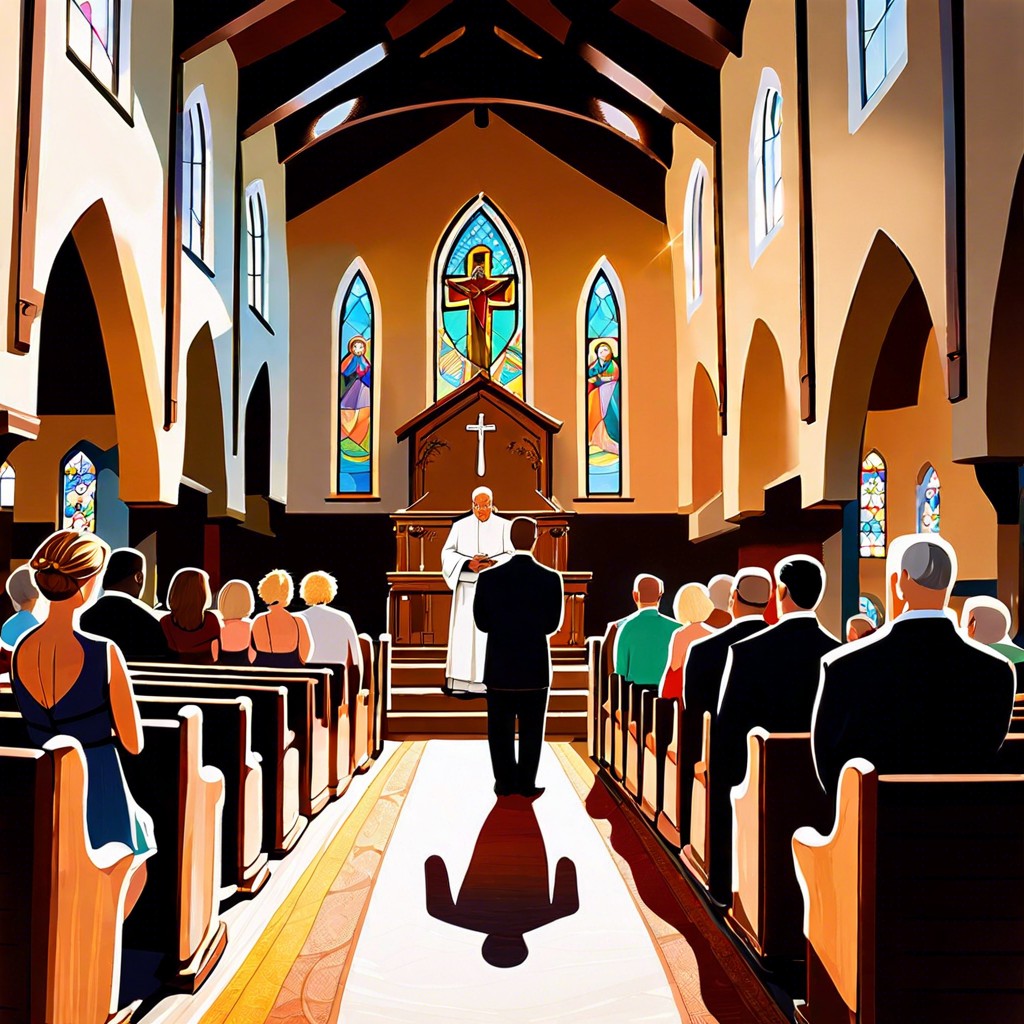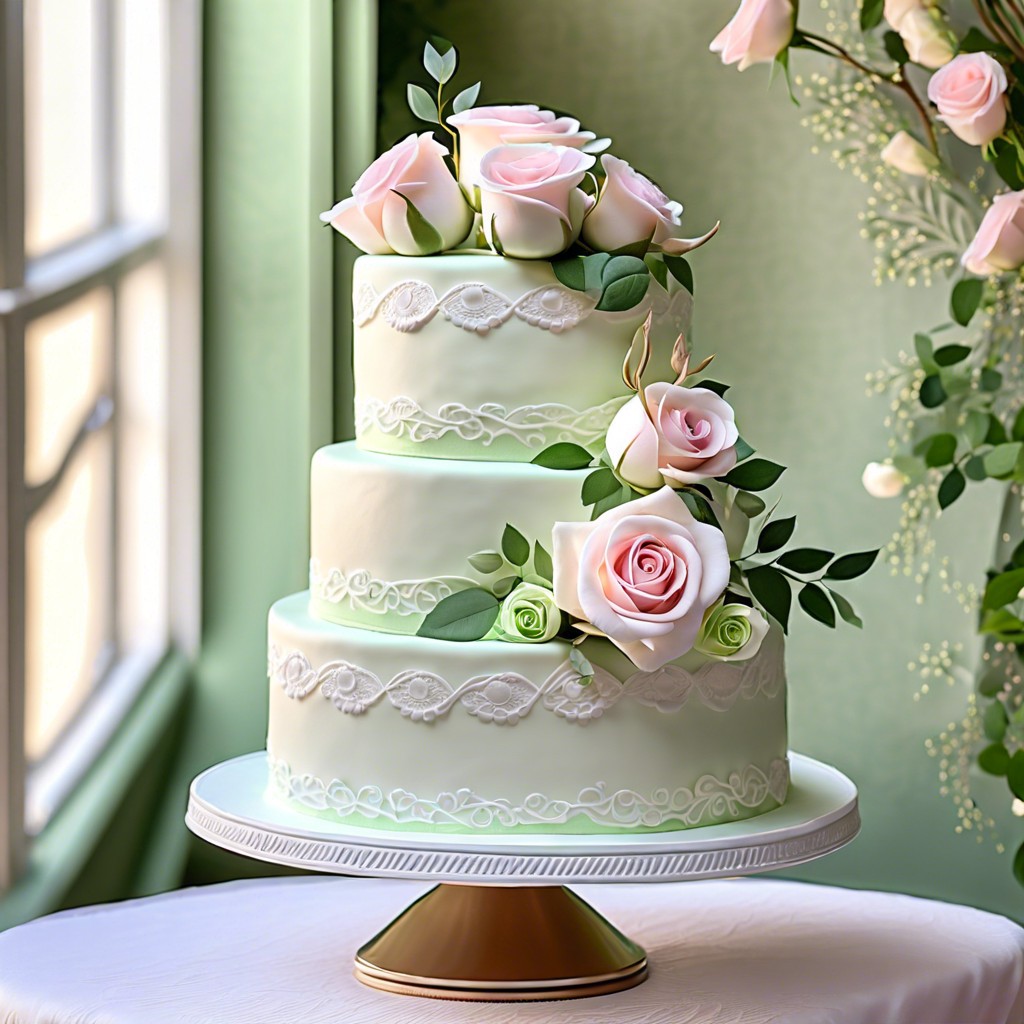When planning an outdoor wedding, it is essential to consider sound and audio considerations, such as ensuring adequate sound system coverage for the ceremony and reception area, using appropriate amplification levels to avoid noise pollution, and providing backup systems in case of inclement weather.
Outdoor weddings are a beautiful way to celebrate your special day, but they come with unique considerations. One of the most important is sound and audio.
From the music for your ceremony to the sound system for speeches and dancing, making sure your outdoor wedding sounds excellent can be a challenge. In this blog post, we’ll discuss how to handle sound and audio considerations for an outdoor wedding so that you can create a memorable experience for everyone involved.
Location

The location of the ceremony and reception will have a direct impact on sound and audio considerations. Choosing a location with minimal background noise, such as traffic or other loud noises, is essential so your guests can hear the ceremony.
Finding a space with enough room for speakers and amplifiers is essential if you plan on having live music or speeches during the event. If possible, try to find a spot with natural acoustics that will help amplify sound without needing additional equipment.
Ensure there are no nearby power sources to avoid any potential electrical interference with your audio equipment.
Weather Conditions

Wind, rain, and humidity can all affect the sound quality produced at an outdoor wedding. Wind can cause microphones to pick up background noise or distort the sound of voices.
Rain can damage equipment or create static interference in audio systems. Humidity levels can also affect the performance of speakers and other audio equipment, making it difficult to produce clear sounds.
It is essential to consider these weather conditions when planning an outdoor wedding so that you are prepared for any potential issues with sound and audio quality.
Sound System Type and Size
The type of sound system needed will depend on the venue size and how many guests will attend. A basic PA system with two speakers should suffice for a small outdoor wedding with fewer than 50 people.
This system is typically powered by batteries or AC power and can provide enough volume for speeches and background music. A more extensive PA system may be necessary for larger weddings with more than 50 attendees to ensure everyone can hear clearly.
A more extensive PA system usually consists of four or more speakers connected to an amplifier, providing additional power for louder volumes. It is also essential to consider whether you need wireless microphones if there will be speeches or performances at the event; these require additional equipment, such as receivers and transmitters, which must be compatible with your chosen sound system.
It is essential to ensure that any audio equipment used outdoors is weatherproofed so that it does not get damaged by rain or other elements during the event.
Microphone Type and Number
Microphones are essential for ensuring that all guests can hear the ceremony. The type of microphone used will depend on the size and layout of the venue, as well as any other audio equipment being used.
For example, if a band or DJ is providing music during the ceremony, a wireless microphone may be necessary to avoid interference with their sound system. Suppose multiple speakers are involved in the ceremony (such as a minister and couple exchanging vows). In that case, multiple microphones should ensure all guests hear each speaker’s voice.
It is also essential to consider whether or not lavalier microphones should be used; these small clip-on mics allow speakers to move freely without worrying about holding onto a handheld mic throughout their speech. Choosing the right type and number of microphones for an outdoor wedding will help ensure everyone can hear every word spoken during this special occasion.
Amplification Equipment
This equipment includes microphones, speakers, amplifiers, and other components that work together to increase sound volume. Microphones are used to capture the bride and groom’s voices and any speeches or readings during the ceremony.
Speakers are then used to project this sound outwards so that everyone in attendance can hear it. Amplifiers boost the signal from these microphones and speakers so that even those further away from them can still hear what is being said.
Other components, such as mixers, may also be necessary depending on how many different sources of audio need to be amplified at once. With all these pieces working together, an outdoor wedding will have no problem ensuring everyone hears every word during the ceremony.
Speaker Placement and Directionality
It involves determining the best location for speakers to be placed to ensure that sound is heard clearly by all guests. It requires considering the direction of the speakers so that sound is directed toward the audience rather than away from them.
This ensures everyone can hear what’s being said or played without distortion or interference from other sources. Proper speaker placement and directionality will help create a pleasant listening experience for all guests at your outdoor wedding.
Background Noise Levels
When planning an outdoor wedding, it is essential to consider the background noise levels as they can significantly impact the overall experience. For example, if loud noises are coming from nearby traffic or construction sites, this could interfere with guests’ ability to hear speeches and music during the ceremony.
High background noise levels can make it difficult for guests to converse with one another during the reception. To ensure that background noise does not interfere with your outdoor wedding, there are several steps you can take.
First, try to find a location away from busy roads and other sources of loud noises, such as construction sites or airports. If possible, choose a venue surrounded by trees or other natural barriers, which will help absorb some sound waves and reduce background noise levels.
You may want to consider renting sound equipment such as speakers and microphones so that your guests can hear all aspects of your special day without any interference from outside sources.
Power Source Availability
Without a reliable power source, the sound system cannot function properly. It is essential to determine what type of power sources are available at the venue before making any decisions about sound equipment.
If there is no access to electricity, then battery-powered or solar-powered systems may need to be used instead. It may be necessary to rent a generator if no other options are available.
It is also essential to consider how much power will be needed for all of the audio equipment used during the event to provide enough without overloading any circuits or outlets.



